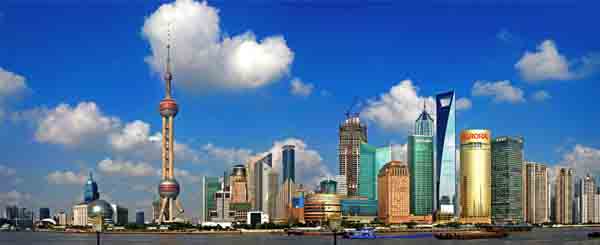Shanghai set for new era of growth as finance hub
- By Dan Steinbock
 0 Comment(s)
0 Comment(s) Print
Print E-mail Shanghai Daily, March 12, 2013
E-mail Shanghai Daily, March 12, 2013

For about half a decade, Shanghai has been preparing for a new era. After the meeting of the National People' Congress, it has the green light to accelerate reforms.
Last week Xi Jinping, general secretary of the Communist Party of China Central Committee, addressed the NPC delegation from Shanghai, urging the megapolis to serve as a pacesetter in the reforms.
While the address reflected past initiatives, it also gave an entirely new momentum for reforms in Shanghai - and the efforts of the megapolis to move to a new stage of growth. And there is more to come.
About only two months ago, Shanghai unveiled a plan to develop the mainland's first free-trade zone.
Last week, China's securities regulators announced that the residents of Hong Kong, Taiwan and Macau living in the mainland will be allowed to open domestic accounts.
The effort, which becomes effective on April 1, is to ease these residents' access to investment in the A-share market.
This move came after China has already tightened rules on delisting companies, cut trading costs, increased quotas for foreign institutions and encouraged dividend payments. It seeks to support the Shanghai Composite Index, which is far from its potential.
Ever since the economic reforms and opening-up policies, Shanghai's strategic importance has steadily increased in China and the region at large.
In March 2009, the State Council approved the megacity's plans to develop modern service and manufacturing sectors and to forge itself into one of the world's leading financial and shipping centers by 2020.
In the coming years, higher foreign earnings from international capital market and asset management activities will further increase the power, profitability and status of Chinese banks.
Now the cautious internationalization of the yuan holds the promise for Shanghai's faster financial expansion.
Sophisticated finance
China's banking, brokerage, insurance, and asset management industries have enjoyed robust growth and profits for more than half a decade. In the process, equity, bond, and currency markets have expanded substantially.
Most importantly, as China moves from investment and exports toward consumption, its new growth model requires more sophisticated financial services, which could support economic growth, strengthen the small- and medium-size enterprises and thus foster their employment effect, while ensuring a viable social support to ordinary Chinese.
Indeed, the green light to reforms, the free-trade zone, and the financial reforms strongly suggest that, in the coming years, Shanghai's role as a financial hub is positioned to expand significantly - in the mainland, the region and the world at large.
Dr Dan Steinbock is the research director of international business at the India, China and America Institute (USA) and a visiting fellow at the Shanghai Institutes for International Studies (China). Shanghai Daily condensed the article.






Go to Forum >>0 Comment(s)